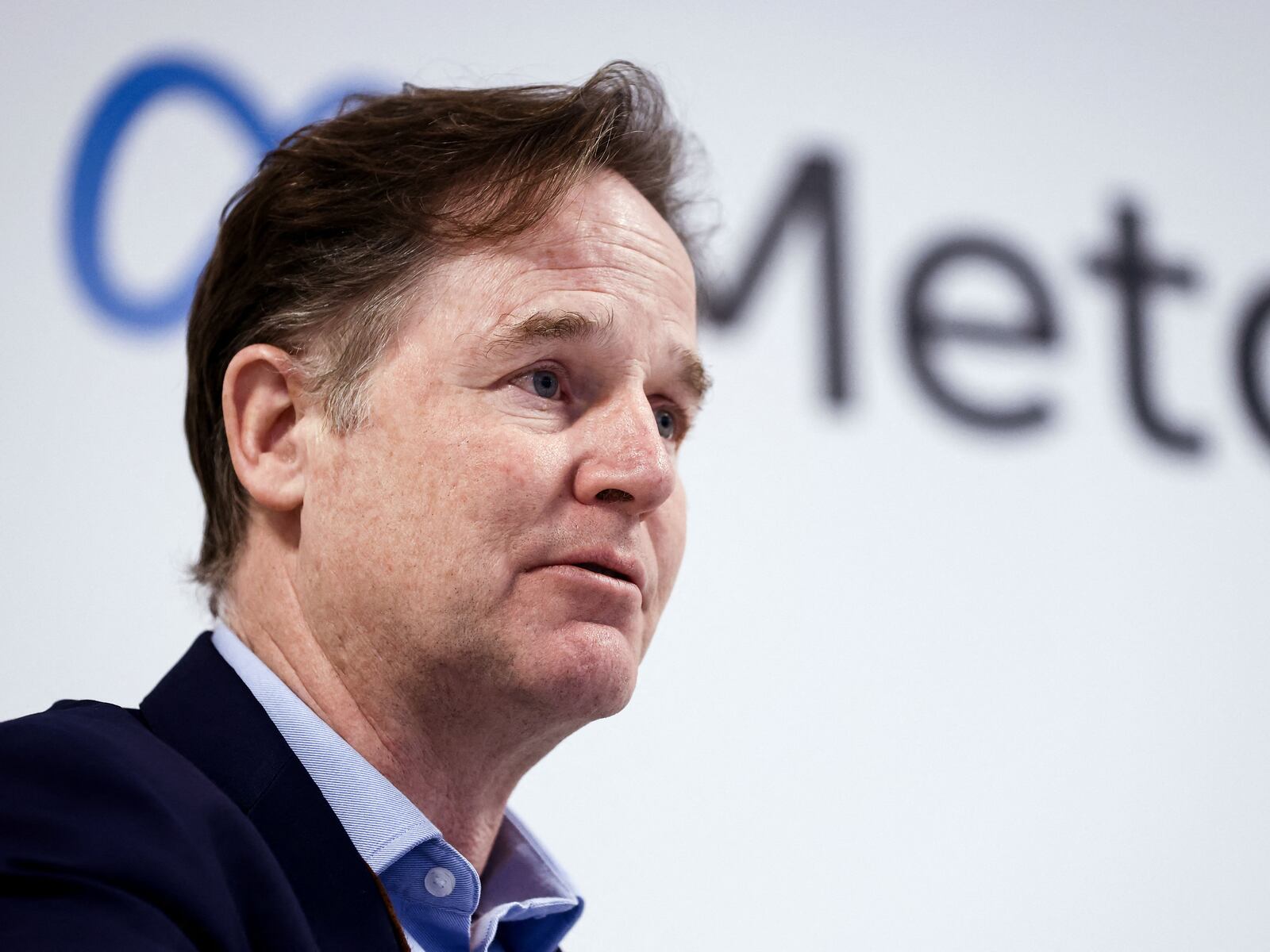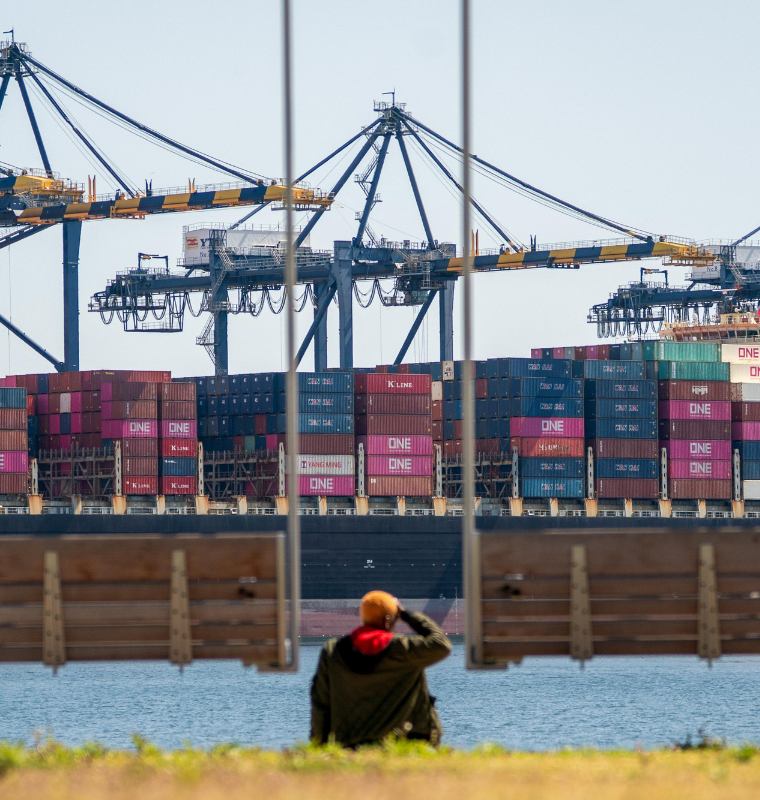AI Market Bubble Warning: Former Meta Executive Nick Clegg Predicts Imminent Correction Amid Sky-High Valuations
AI Market Bubble Warning: Former Meta Executive Nick Clegg Predicts Imminent Correction Amid Sky-High Valuations
By
Rachel Steinberg
Last updated:
October 17, 2025
First Published:
October 17, 2025

Photo: The Irish Times
AI Frenzy Could Face Reality Check, Says Nick Clegg
The artificial intelligence boom, which has captivated global investors and reshaped the tech landscape, might soon meet its first major test. Former Meta executive and U.K. Deputy Prime Minister Nick Clegg warned that the “chance of a market correction in AI is pretty high,” describing the current state of the industry as an “unbelievable, almost manic rush of deal-making.”
In an interview with CNBC’s Squawk Box Europe, Clegg said AI’s rapid expansion has created “crazy valuations” across startups and major firms alike, with investors flooding billions into ventures that may not yet have proven business models. “You’ve got to think, wow—this could be headed for a correction,” he said, underscoring how investor optimism might have outpaced commercial reality.
Billions Pouring Into AI Infrastructure
Clegg highlighted that much of the risk lies in whether large tech giants—like Google, Amazon, and Microsoft—can recoup their massive AI infrastructure investments. These hyperscalers are “pouring hundreds of billions of dollars into the ground building data centers,” Clegg noted. “At some point, the question becomes whether these investments are sustainable.”
Market data supports his concern. Global AI spending is projected to reach over $200 billion by 2027, according to IDC, with cloud providers accounting for the majority of that investment. Yet, few AI models have reached consistent profitability, especially as training costs for large language models (LLMs) soar.
Clegg cautioned that the “large language model paradigm” underpinning much of today’s AI development might not deliver the long-term returns many anticipate. “It’s a paradigm that works well for probabilistic reasoning, but it may have fundamental limits that prevent it from achieving what some technologists call artificial superintelligence,” he said.
Superintelligence or Overhyped Vision?
The conversation around AI’s future is increasingly split between optimism and realism. Many influential tech leaders—such as SoftBank founder Masayoshi Son and Meta CEO Mark Zuckerberg—are doubling down on artificial superintelligence (ASI), where AI surpasses human intelligence. Meta even launched a new research lab earlier this year to accelerate progress toward this goal.
Clegg, however, pushed back on this notion. “I think there are certain limits to what probabilistic AI can do,” he said. “It won’t be quite as all-singing and all-dancing as some suggest.”
Still, he emphasized that the limitations of superintelligence don’t mean AI’s growth is slowing down. “The technology will persist, it will flourish, and it will have a huge effect,” he said.
Lessons from Past Tech Bubbles
Clegg’s comments draw parallels with the early 2000s dot-com bubble—a period when tech valuations soared before crashing. Yet, some companies, including Amazon, Google, and Meta (then Facebook), survived the downturn and became dominant players.
He believes a similar pattern could play out in AI. “A correction doesn’t mean the end—it’s often where the strongest companies emerge,” he said. Historically, economic downturns have produced some of the most resilient businesses, forcing founders to focus on profitability, operational efficiency, and real-world value rather than hype.
That sentiment echoes remarks by Amazon founder Jeff Bezos, who recently called the current AI surge an “industrial bubble,” but added, “AI is real—it’s going to change every industry.”
AI’s Long Game: Adoption Will Be Slower Than Expected
Despite the overwhelming momentum, Clegg believes the pace of AI adoption may not match Silicon Valley’s expectations. “There’s a lot of hype. People in tech think if you invent a technology on Tuesday, everyone’s using it by Thursday. But that’s not how it works,” he said.
He pointed to the personal computing revolution as an example. “It took 20 years for desktop computing to become mainstream after it was technically possible,” Clegg noted. “AI will follow a similar path—adoption will vary by sector, country, and culture.”
Analysts agree: industries such as finance, healthcare, and retail are seeing early adoption, but mass integration across all business functions could take a decade or more.
The Road Ahead: Caution and Opportunity
While Nick Clegg’s warning about an impending AI correction may sound alarming, it reflects a broader market sentiment that’s beginning to favor sustainable growth over unchecked expansion. The AI industry, now valued at more than $300 billion globally, continues to evolve rapidly—but so do investor expectations.
Clegg’s takeaway is clear: the AI revolution is real, but like every technological wave before it, it will eventually separate speculation from substance. The winners will be those who balance innovation with discipline—turning today’s hype into tomorrow’s enduring value.
Popular articles
Subscribe to unlock premium content
Merch, Meals, and Memories

Innovating One Feature at a Time

Zero Taxes, Maximum Attraction – Why Monaco is the ultimate playground for the wealthy.

Merch, Meals, and Memories

Innovating One Feature at a Time

Merch, Meals, and Memories







.png)

